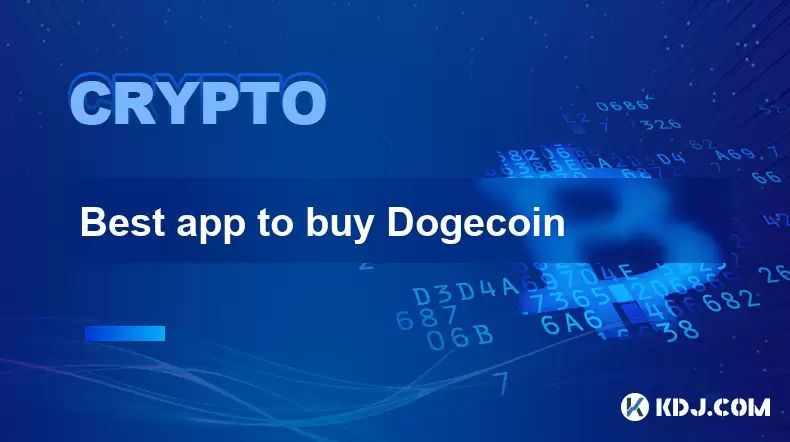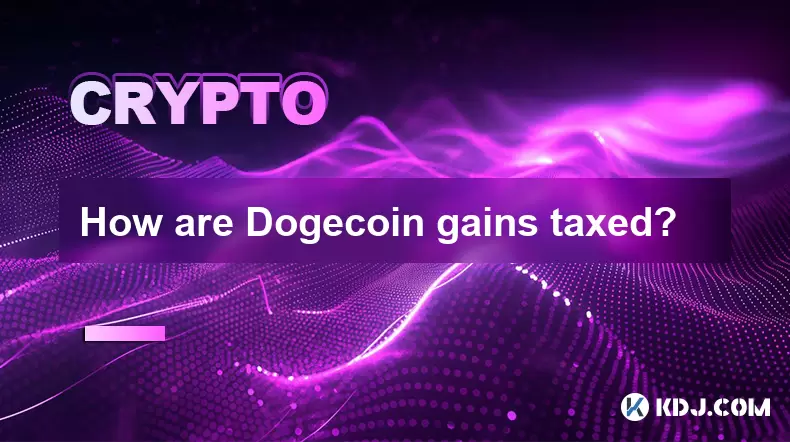-
 bitcoin
bitcoin $87959.907984 USD
1.34% -
 ethereum
ethereum $2920.497338 USD
3.04% -
 tether
tether $0.999775 USD
0.00% -
 xrp
xrp $2.237324 USD
8.12% -
 bnb
bnb $860.243768 USD
0.90% -
 solana
solana $138.089498 USD
5.43% -
 usd-coin
usd-coin $0.999807 USD
0.01% -
 tron
tron $0.272801 USD
-1.53% -
 dogecoin
dogecoin $0.150904 USD
2.96% -
 cardano
cardano $0.421635 USD
1.97% -
 hyperliquid
hyperliquid $32.152445 USD
2.23% -
 bitcoin-cash
bitcoin-cash $533.301069 USD
-1.94% -
 chainlink
chainlink $12.953417 USD
2.68% -
 unus-sed-leo
unus-sed-leo $9.535951 USD
0.73% -
 zcash
zcash $521.483386 USD
-2.87%
What is the difference between Dogecoin liquidation and Bitcoin liquidation?
Dogecoin's high volatility and low liquidity increase liquidation risk compared to Bitcoin, whose greater stability and liquidity mitigate losses during forced asset sales.
Feb 28, 2025 at 08:48 am

What is the difference between Dogecoin liquidation and Bitcoin liquidation?
Key Points:- Market Volatility: Dogecoin's price is significantly more volatile than Bitcoin's, leading to faster and more frequent liquidations.
- Liquidity: Bitcoin boasts far greater liquidity than Dogecoin, meaning it's easier to sell large amounts without significantly impacting the price. This affects liquidation processes and the potential for losses.
- Margin Requirements: Exchanges often set higher margin requirements for Dogecoin trading due to its volatility, increasing the likelihood of liquidation. Bitcoin, with its relative stability, may have lower margin requirements.
- Collateralization: The value of collateral used to secure a loan or margin position plays a crucial role. While both can be used as collateral, fluctuations in Dogecoin's price pose a greater risk of insufficient collateral, triggering liquidation.
- Regulatory Scrutiny: The regulatory landscape for cryptocurrencies is still evolving. Bitcoin, being the more established asset, generally faces less regulatory uncertainty compared to Dogecoin, potentially influencing liquidation procedures.
- High Volatility and Risk: Dogecoin's price is notoriously volatile, experiencing dramatic swings in a short period. This high volatility is a double-edged sword. While it presents opportunities for rapid gains, it also significantly increases the risk of liquidation. A sudden, sharp drop in Dogecoin's price can quickly wipe out a trader's margin, leading to the forced sale of their assets to cover losses. This can happen even with relatively small price movements if the leverage used is high. The unpredictable nature of Dogecoin's price makes it challenging to accurately predict when a liquidation might occur, increasing the anxiety and uncertainty for traders involved. The meme-driven nature of Dogecoin further complicates matters, as price movements can be influenced by social media trends and news cycles rather than fundamental factors. This unpredictable element makes it difficult for sophisticated trading algorithms to accurately predict price movements, increasing the chance of unexpected liquidations. Many less experienced traders are drawn to Dogecoin due to its meme status and potential for quick profits, but this often translates into higher levels of risk-taking and consequently, a higher likelihood of liquidation events.
- Lower Liquidity and Impact of Liquidations: Compared to Bitcoin, Dogecoin has significantly lower liquidity. This means that when a large number of Dogecoin positions are liquidated simultaneously, the sudden influx of sell orders can dramatically impact the price. This price impact can exacerbate losses for those undergoing liquidation, as the price is driven down further by the very act of selling to cover margin calls. The cascading effect of multiple liquidations can create a vicious cycle, pushing the price even lower and triggering further liquidations. This contrasts sharply with Bitcoin, where the higher liquidity generally allows for large sell-offs without the same degree of immediate price impact. The limited liquidity in the Dogecoin market makes it a more risky asset to use as collateral for leveraged trading, increasing the potential for significant losses during liquidations. This lack of liquidity means that finding buyers for large amounts of Dogecoin during a rapid price drop can be challenging, potentially leading to even greater losses for those being liquidated.
- Margin Requirements and Leverage: Cryptocurrency exchanges typically set higher margin requirements for trading volatile assets like Dogecoin. This means traders need to deposit a larger amount of collateral to open and maintain a leveraged position. While this mitigates the risk of liquidation to some extent, it also limits the potential leverage traders can use. The higher margin requirements for Dogecoin reflect the higher risk associated with trading this cryptocurrency. This means that traders seeking high leverage to amplify their potential gains will find it more difficult to trade Dogecoin compared to Bitcoin. The tighter margin requirements act as a safety net, preventing traders from taking on excessive risk and potentially triggering a large-scale market crash. However, it also restricts trading opportunities and profitability for those who are willing to take on higher risk. Understanding these margin requirements is crucial for managing risk and avoiding liquidation when trading Dogecoin.
- Relative Stability and Lower Risk: Bitcoin, being the most established cryptocurrency, exhibits relatively lower price volatility compared to Dogecoin. This relative stability translates to a lower risk of liquidation for traders holding Bitcoin-based leveraged positions. While Bitcoin's price is still subject to fluctuations, these are generally less dramatic and less frequent than those experienced by Dogecoin. This lower volatility allows traders to better manage their risk and predict potential price movements, reducing the likelihood of unexpected liquidations. The established nature of Bitcoin and its large market capitalization also contribute to its relative stability, making it a more predictable asset for leveraged trading compared to newer, more volatile cryptocurrencies. This relative predictability allows traders to employ more sophisticated risk management strategies and potentially increase their profitability while mitigating the risk of liquidation.
- High Liquidity and Minimal Price Impact: Bitcoin boasts significantly higher liquidity than Dogecoin. This means that large amounts of Bitcoin can be sold quickly without significantly impacting the overall price. This high liquidity is crucial during liquidation events, as it ensures that traders can easily exit their positions without suffering substantial losses due to adverse price movements caused by the liquidation itself. The deep and liquid Bitcoin market provides a safety net for traders, minimizing the risk of cascading liquidations and market crashes. This contrasts sharply with the less liquid Dogecoin market, where large sell-offs can trigger significant price drops, further exacerbating losses for those being liquidated. The high liquidity in the Bitcoin market also makes it easier for exchanges to process liquidations efficiently and fairly, minimizing the potential for delays or complications.
- Lower Margin Requirements and Leverage Flexibility: Due to Bitcoin's relative stability, cryptocurrency exchanges often set lower margin requirements for Bitcoin trading compared to Dogecoin. This allows traders to leverage their positions more aggressively while maintaining a lower risk of liquidation. This increased leverage flexibility allows traders to potentially maximize their profits while still managing their risk effectively. However, it's crucial to remember that even with lower margin requirements, leverage trading always involves significant risk, and traders should carefully manage their positions to avoid liquidation. The lower margin requirements for Bitcoin reflect the lower risk associated with trading this established cryptocurrency. This allows for a greater range of trading strategies and potentially higher profitability, but it also requires a higher level of risk management expertise. Traders must carefully balance leverage with their risk tolerance to avoid potential liquidation events.
- Dogecoin as Collateral: Using Dogecoin as collateral for loans or margin trading is riskier due to its high volatility. A relatively small price drop can quickly erode the value of the collateral, triggering a margin call and subsequent liquidation. The unpredictable nature of Dogecoin's price makes it a less reliable asset for collateralization compared to Bitcoin. Traders using Dogecoin as collateral need to carefully monitor price movements and adjust their positions accordingly to avoid liquidation. The risk of liquidation is significantly higher when using Dogecoin as collateral compared to using Bitcoin.
- Bitcoin as Collateral: Bitcoin, with its relative stability and high liquidity, serves as more reliable collateral. The likelihood of a significant price drop that would trigger liquidation is lower compared to Dogecoin. However, it's still essential to carefully manage risk and monitor price movements to prevent potential liquidation. While Bitcoin is generally considered a safer option for collateral, it's still subject to price fluctuations, and traders need to exercise caution. The relative stability of Bitcoin makes it a preferred choice for collateralization compared to more volatile cryptocurrencies like Dogecoin.
- Dogecoin Regulatory Uncertainty: The regulatory landscape for cryptocurrencies is still evolving. Dogecoin, being a relatively newer and less established cryptocurrency, faces greater regulatory uncertainty. This uncertainty can impact liquidation procedures and the overall treatment of Dogecoin in the context of margin trading and lending. Changes in regulations could potentially affect the ease and speed of liquidations involving Dogecoin.
- Bitcoin Regulatory Scrutiny: Bitcoin, as the most established cryptocurrency, has attracted more regulatory scrutiny. While this scrutiny can create challenges, it also leads to a more established and predictable regulatory framework. This generally results in clearer rules and procedures regarding liquidation processes involving Bitcoin. The relative clarity of regulations surrounding Bitcoin makes it a more predictable asset for leveraged trading and collateralization, reducing some of the uncertainty associated with Dogecoin.
A: Liquidation is triggered when the value of a trader's collateral falls below a certain threshold set by the exchange (the maintenance margin). This happens due to price drops in the underlying cryptocurrency (Dogecoin or Bitcoin). The margin call is issued, and if the trader fails to deposit more funds to meet the requirement within a specified time, their position is automatically liquidated to cover losses.
Q: Are the fees associated with Dogecoin and Bitcoin liquidations different?A: Fees can vary depending on the exchange, but generally, liquidation fees are similar for both Dogecoin and Bitcoin. However, the impact of those fees is greater on Dogecoin liquidations due to its higher volatility. A small percentage fee on a large position can represent a significant loss in Dogecoin if the price drops sharply during liquidation.
Q: Can I prevent liquidation in Dogecoin and Bitcoin trading?A: Yes, diligent risk management is key. This involves: using lower leverage, closely monitoring price movements, setting stop-loss orders, and having sufficient margin to withstand potential price fluctuations. Diversification of your portfolio can also help mitigate the risk of complete liquidation.
Q: Is it riskier to use Dogecoin or Bitcoin as collateral for a loan?A: Dogecoin is significantly riskier due to its high volatility. A sharp price drop could easily lead to liquidation, resulting in the loss of the collateral. Bitcoin is considered a relatively safer option due to its higher market capitalization and lower volatility, but still carries risk.
Q: What are the legal implications of liquidation in the cryptocurrency market?A: The legal implications are complex and still evolving. Generally, exchanges operate under their own terms of service, and liquidation is considered a contractual obligation. However, disputes can arise regarding the fairness and transparency of liquidation processes. Legal recourse may be available depending on the specifics of the situation and jurisdiction.
Disclaimer:info@kdj.com
The information provided is not trading advice. kdj.com does not assume any responsibility for any investments made based on the information provided in this article. Cryptocurrencies are highly volatile and it is highly recommended that you invest with caution after thorough research!
If you believe that the content used on this website infringes your copyright, please contact us immediately (info@kdj.com) and we will delete it promptly.
- Work Dogs Unleashes TGE Launch, Sets Sights on Mid-2026 Listing & Ambitious $25 Token Target
- 2026-01-31 15:50:02
- WD Coin's TGE Launch Ignites Excitement: A Billion Tokens Set to Hit the Market
- 2026-01-31 16:10:02
- Royal Mint Launches Interactive £5 Coin for a Thrilling Code-Breaker Challenge
- 2026-01-31 16:10:02
- Crypto, AI, and Gains: Navigating the Next Wave of Digital Assets
- 2026-01-31 15:50:02
- Coin Nerds Forges Trust in the Digital Asset Trading Platform Landscape Amidst Evolving Market
- 2026-01-31 16:05:01
- Blockchains, Crypto Tokens, Launching: Enterprise Solutions & Real Utility Steal the Spotlight
- 2026-01-31 12:30:02
Related knowledge

Bitcoincoin burning mechanism
Jul 20,2025 at 09:21pm
What is the Dogecoin burning mechanism?The Dogecoin burning mechanism refers to the process of permanently removing DOGE tokens from circulation by se...

How to earn free Bitcoincoin?
Jul 19,2025 at 10:08pm
What is Dogecoin and Why Earn It?Dogecoin (DOGE) started as a meme-based cryptocurrency in 2013 but has grown into a widely recognized digital asset. ...

Is Coinbase a good wallet for Bitcoincoin?
Jul 19,2025 at 04:42pm
Understanding Coinbase as a Wallet Option for DogecoinWhen considering where to store Dogecoin, Coinbase is often mentioned as a potential option due ...

How to buy Bitcoincoin with PayPal?
Jul 23,2025 at 06:57am
Understanding the Basics of Buying DogecoinBefore diving into the process of buying Dogecoin with PayPal, it’s essential to understand what Dogecoin i...

Best app to buy Dogecoin
Jul 23,2025 at 03:08pm
What Is a Cryptocurrency Exchange and How Does It Work?A cryptocurrency exchange is a digital marketplace where users can buy, sell, or trade cryptocu...

How are Dogecoin gains taxed?
Jul 25,2025 at 07:01am
Understanding the Taxation of Dogecoin GainsWhen it comes to Dogecoin (DOGE), many investors are drawn to its meme-inspired branding and volatile pric...

Bitcoincoin burning mechanism
Jul 20,2025 at 09:21pm
What is the Dogecoin burning mechanism?The Dogecoin burning mechanism refers to the process of permanently removing DOGE tokens from circulation by se...

How to earn free Bitcoincoin?
Jul 19,2025 at 10:08pm
What is Dogecoin and Why Earn It?Dogecoin (DOGE) started as a meme-based cryptocurrency in 2013 but has grown into a widely recognized digital asset. ...

Is Coinbase a good wallet for Bitcoincoin?
Jul 19,2025 at 04:42pm
Understanding Coinbase as a Wallet Option for DogecoinWhen considering where to store Dogecoin, Coinbase is often mentioned as a potential option due ...

How to buy Bitcoincoin with PayPal?
Jul 23,2025 at 06:57am
Understanding the Basics of Buying DogecoinBefore diving into the process of buying Dogecoin with PayPal, it’s essential to understand what Dogecoin i...

Best app to buy Dogecoin
Jul 23,2025 at 03:08pm
What Is a Cryptocurrency Exchange and How Does It Work?A cryptocurrency exchange is a digital marketplace where users can buy, sell, or trade cryptocu...

How are Dogecoin gains taxed?
Jul 25,2025 at 07:01am
Understanding the Taxation of Dogecoin GainsWhen it comes to Dogecoin (DOGE), many investors are drawn to its meme-inspired branding and volatile pric...
See all articles





















![Ultra Paracosm by IlIRuLaSIlI [3 coin] | Easy demon | Geometry dash Ultra Paracosm by IlIRuLaSIlI [3 coin] | Easy demon | Geometry dash](/uploads/2026/01/31/cryptocurrencies-news/videos/origin_697d592372464_image_500_375.webp)




















































